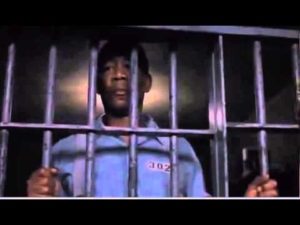This poem is labeled a “Psalm of Ascent” but it starts as a Psalm of Descent. It is called De Profundis in older Bibles—the Latin for “from the depths.” And that just might make this an appropriate preaching passage for the Fifth Sunday in Lent in the COVID-19 pandemic when many of us will not be able to gather in our sanctuaries with our congregations. The Gospel lection is the raising of Lazarus in John 11 and that might also capture the resurrection hope some need just now.

But I suspect that most of us feel in the depths right now, in extremis. We are disoriented. We are uncertain. Many of us who had packed calendars 10 days ago now see day after day of blank squares. Or of radically revised squares with Zoom links replacing face to face meetings, classes, even worship services. We are praying. We are preaching in some format or another. We are singing. We are journeying toward the cross and to the Easter glory on the other side of Golgotha.
Yet we are doing all of it from the depths. Depths of uncertainty. Depths of fear. Depths of worry for vulnerable loved ones.
So what a profound time it is to let Psalm 130’s simple message sink in: put your trust and your hope in the Lord. No, this is not easy. This is no counted-cross-stich moment, no Precious Moments time where pithy lines lifted out of the Psalms can get loosely tossed out as though some pious panacea for everything. The depths are at once the place where we need to trust in God the most and also the time when doing precisely that is the hardest. In the depths we are as likely to throw pious bromides of assurance right back into the face of the well-meaning person who proffers them to us. Saccharine words that might roll right off us in ordinary (much less good) times can sting us like blowing sand in a desert storm when times are anything but ordinary or good.
So we preachers proffer Psalm 130’s call to trust pastorally, gingerly, with all due acknowledgment of why this is not easy. And maybe one way to do that is to take seriously the heart-wrenching yearning in this psalm. You can feel the poet’s agony, his straining to locate and see God through the murky gloom. He is like a watchman yearning for the first hint of pink and orange lighting up the eastern horizon after a very long, very frightening nighttime of watching for enemies in the pitch dark from the ramparts of a city.
Indeed, this yearning is so fierce that in verse 6 the psalmist does something pretty rare in the Hebrew Psalter: instead of engaging in the standard Hebrew poetic parallelism in which you repeat a line with slightly altered words (“God is our refuge and strength / An ever-present help in trouble”), instead here the line just gets repeated for emphasis.
More than watchmen wait for the morning / More than watchmen wait for the morning.
Can you hear the intensity of that? Can we acknowledge in our sermons how awful that kind of longing can feel? How long nights in the hospital can feel when we are at the bedside of a sick child? How long the nights are when sleep will not come because our minds cannot stop racing in worry about this or that issue in our life?
The depths really can be that bad. In fact, they usually are. So let’s admit it. Let’s admit that this is the voice of faith articulating both this desperation and this longing. These are not the words of a person with little faith but of a person with strong faith. It is what Walter Brueggemann has called “the Friday voice of faith.” Lament. Longing.
Even so and in the midst of the travail, put your hope in God. He is the cosmic source of chesed, of unfailing love and grace. He has redeemed us from our sins. He has rescued this world from the grip of evil darkness. And as Christians we can now affirm in this Lenten Season that he has won the decisive victory in Jesus Christ. And because that victory had to go from de profundis first (“My God, my God, why have you forsaken me!!??”), we can be assured that this salvation reaches us in all our deep and dark places too.
It is in the end a simple message. Not an easy message. Not a message to be delivered tritely or lightly. But maybe just maybe it is the word we all need to hear in this COVID-19 time. O Church of Jesus Christ: put your hope in the Lord.
Additional Year A Resources for Lent and Holy Week now available.
Illustration Idea

I have watched The Shawshank Redemption so often—all of it or parts of it when I run across it on cable—that there are few subjects in life that I cannot link to some scene or another in the film! And so also for Psalm 130. In the scene you can view here, Andy has made a fateful decision: this was to be the night of his long-planned escape from Shawshank Prison. But Andy’s friend, Red (Morgan Freeman) fears that Andy is in despair and is going to hang himself in his cell. Red’s description of his long night of deep worry when time “draws out like a blade” matches the mood of being in the depths a la Psalm 130 as well as a deep, deep longing for the morning light to come.
Dive Deeper
This Week:
Spark Inspiration:
Sign Up for Our Newsletter!
Insights on preaching and sermon ideas, straight to your inbox. Delivered Weekly!
Sermon Commentary for Sunday, March 29, 2020
Psalm 130 Commentary